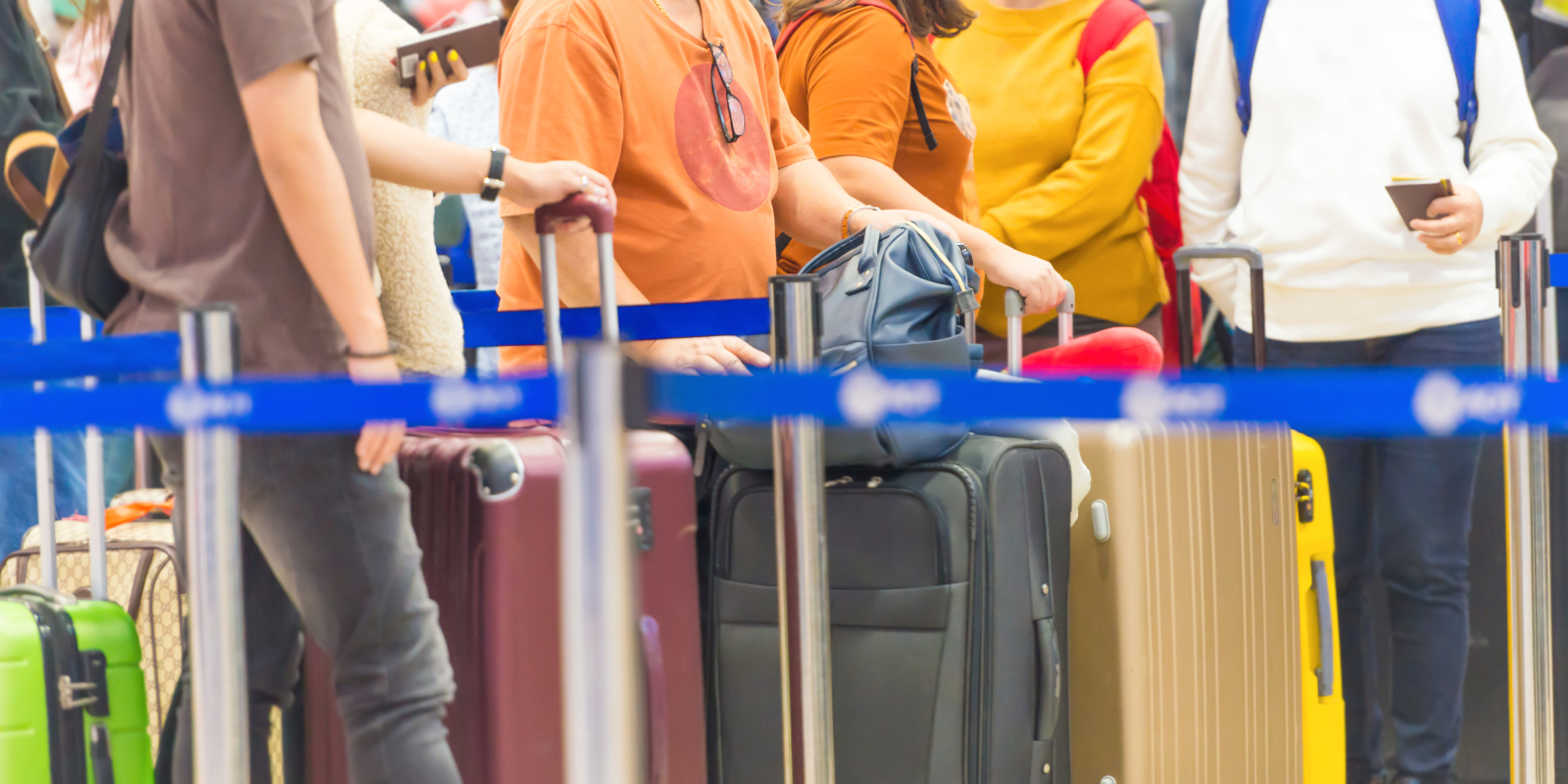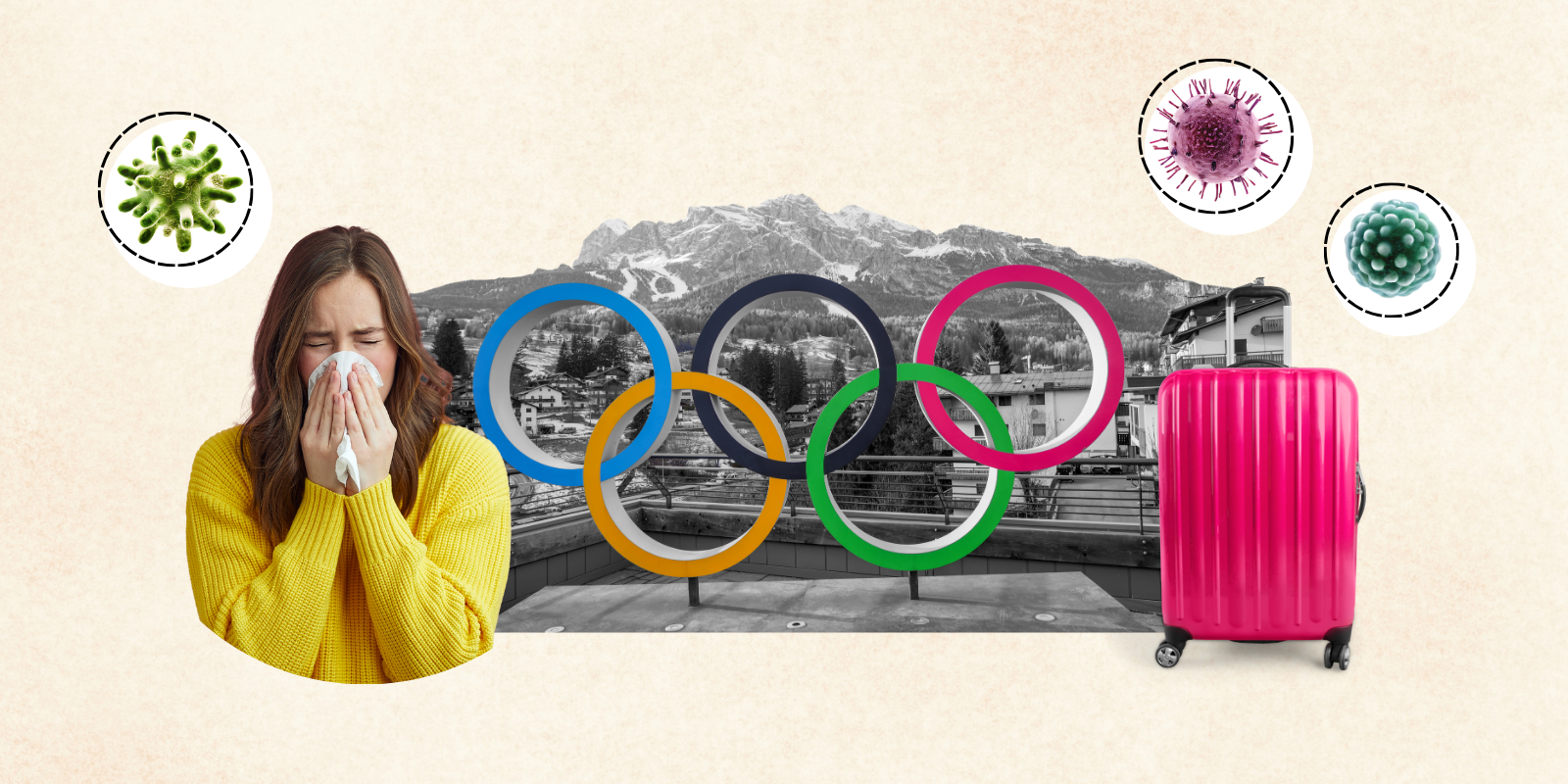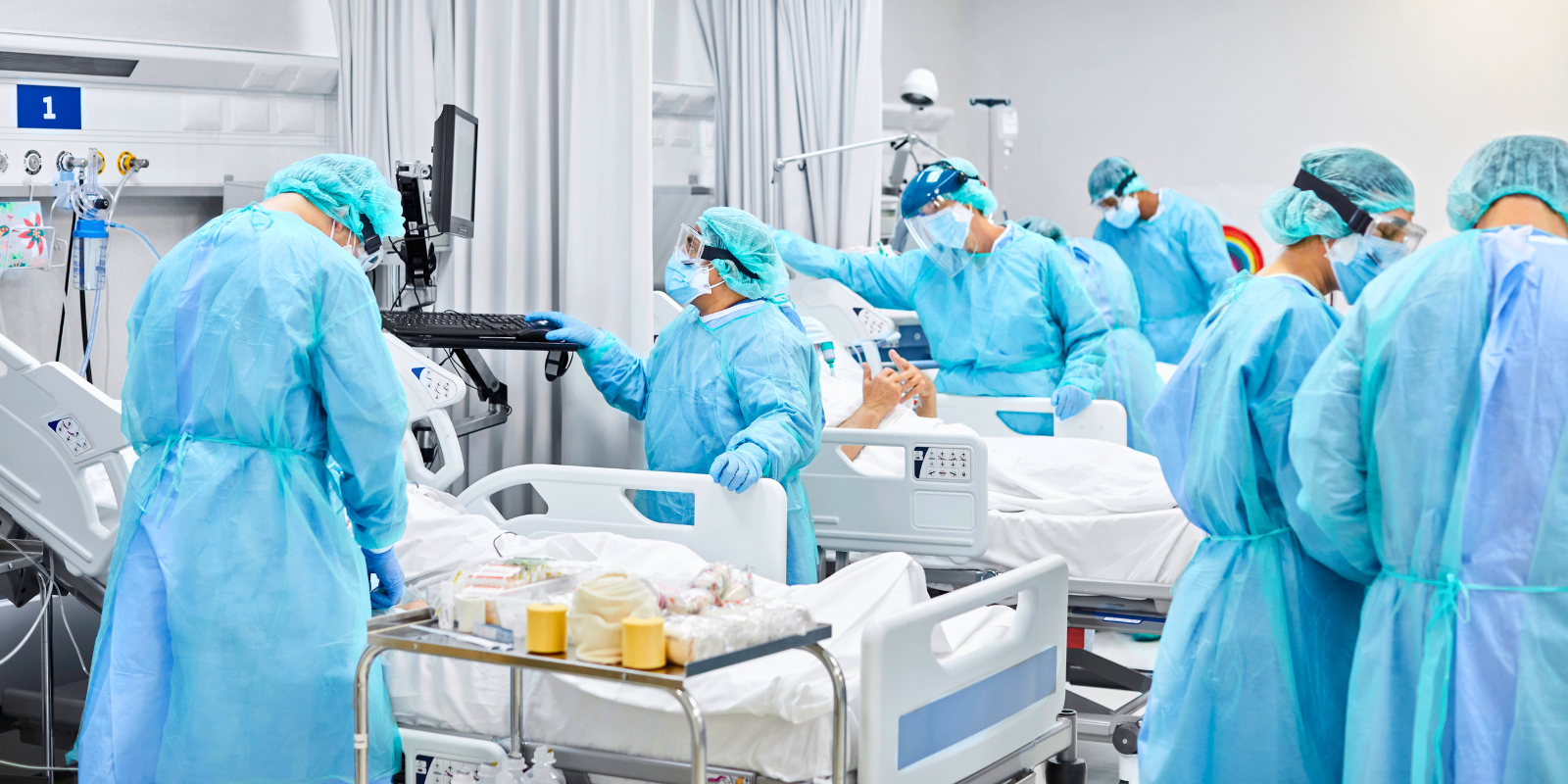With holiday travel season upon us, what are some of the diseases we need to worry about this year?
All the usual suspects, including COVID-19, influenza, and RSV, will be around. Right now the Centers for Disease Control and Prevention are predicting a similar respiratory virus illness picture as last year. It’s important to note that hospital admissions for respiratory viruses are significantly increased from a normal year pre-pandemic.
Then there are a few bacteria that have been in the news recently. Pertussis or whooping cough, which is due to the bacterium Bordetella pertussis, is making a surge. It can cause very severe respiratory illness in small children. This increase is partly related to changes in our behavior during the pandemic and after. But we’ve also seen a decrease in vaccination rates, including for pertussis. There’s more vaccine hesitancy and more false information about vaccines out there, contributing to this decrease.
→ How Effective Communication Can Increase Childhood Vaccination Rates
Also in the news is walking pneumonia, due to mycoplasma pneumonia. All of these viruses and bacteria are spread by infectious droplets, and sometimes they’re spread when people touch a contaminated surface.
Are there steps we should take beforehand to travel more safely?
Make sure your vaccinations are up to date. We have updated vaccinations available for COVID-19 and influenza for everyone 6 months and older. They might not prevent you from getting the illness altogether, but they certainly decrease the risk of hospitalization and death from these respiratory illnesses. There’s also an RSV vaccine for older people, pregnant people, and infants, which is an exciting development.
It’s also a good idea to make a travel health kit for your carry-on so you can keep together anything you might need – your prescriptions and over-the-counter medications, hand sanitizer, disinfecting wipes, and a face mask. Also, bring your health insurance cards.
For older people or those with complex medical problems, I suggest bringing a card or printout listing your medical problems, medications, blood type, and so on, or a medical alert bracelet, especially if you’re leaving the country.
Should someone fly if they're feeling just a little sick?
The CDC recommends that you stay home and away from others if you’re having respiratory symptoms that aren’t explained by another cause. In the wintertime, allergies are less likely, for example. I would say that with things like fever, cough, shortness of breath, you should stay home. The CDC also recommends taking extra precautions for five days after your fever goes away because you may still be contagious.
With something like a mild runny nose, that gets a bit trickier. You should take into account who you’re going to be visiting and how much you need to travel.
For folks who have been sick with mild symptoms and they feel like they’re getting better overall, I think it’s fine to travel, but there are things you can do to take precautions – consider using a face mask when in close contact with others, try to stay physically distant, wipe down surfaces after using them, and practice good hand hygiene, either washing with soap and water for 20 seconds or using hand sanitizer with 60% alcohol.
→ Is It Time to Wear a Mask Again?
People who travel over the holidays will face a lot of situations where they’re standing in line or crowded together with other people. Are there places where people need to be especially careful?
That’s tricky because it’s hard to single out any one space within the travel continuum. But any place that’s confined with recirculated air will have more of a risk for the spread of illness – like public transportation, hotels, and restaurants where people are crowded close together.
To help prevent the spread of illness, there’s what we call respiratory etiquette – covering your cough or sneezes. And frequently cleaning touched surfaces is a good precaution.
→ 10 Ways to Maintain Optimal Health During the Holidays
The airlines say they use hospital grade filters that remove the vast majority of bacteria and viruses from cabin air. Should travelers feel confident about that?
On a modern, commercial airline flight, the air is fairly safe for a lot of reasons. For one thing, everyone is facing the same direction, you have the seat backs as barriers, and airflow is top to bottom and not along the length of the aircraft.
Also, most commercial jets recirculate air through HEPA (high-efficiency particulate air) filters that have a 99.9% capture rate for bacteria, viruses and fungi, and the cabin air is being refreshed by outside air more than would happen in an office building.
That being said, if you’re sitting close to someone who’s having significant respiratory symptoms, in your row or a row or two near you, there would still be a risk. It might be a good idea to pack a face mask in your carry-on in case you find yourself in this situation.
→ Keeping Your Eyes Healthy Throughout the Holidays
Once you get where you’re going, you'll be gathering in close quarters with people you’re not usually with. Does that increase the risk of getting sick?
There are many things about wintertime that make the spread of respiratory illnesses primed to happen. For one thing, you’re indoors more often. And anytime you have more social contacts beyond seeing the same cluster of people at home or work, there’s a higher likelihood of spreading illness. Also, the winter air is drier, so respiratory droplets can remain suspended in the air for longer than they are in the summer months, when it’s more humid and those droplets can become heavier and don’t stay in the air as long.
If you’re going to visit someone with certain medical conditions, like they’re pregnant or they have a new baby or they’re undergoing treatment for cancer, it’s important to have a conversation ahead of time about the risk level and whether there should be a large family gathering.
→ To Help Keep Your Heart Healthy, Go Easy on the Holiday Cheer
If you’re heading overseas, are there additional precautions you should take?
Having your routine vaccinations are important, particularly those that are time sensitive to the season, such as for flu and COVID-19. Also, make sure that your health insurance will cover you if you get sick out of the country. If not, there are travel-related health insurance plans you can purchase.
You should also check on any specific health risks in the country you’re going to, or the part of the country. The CDC posts travel health notices about disease outbreaks and other health risks ranked by levels of risk and offers advice about ways to protect yourself in those areas. Also, going to a travel clinic before an overseas trip can be helpful to make sure you have all the vaccinations and medications you need to keep from getting sick while on holiday.




